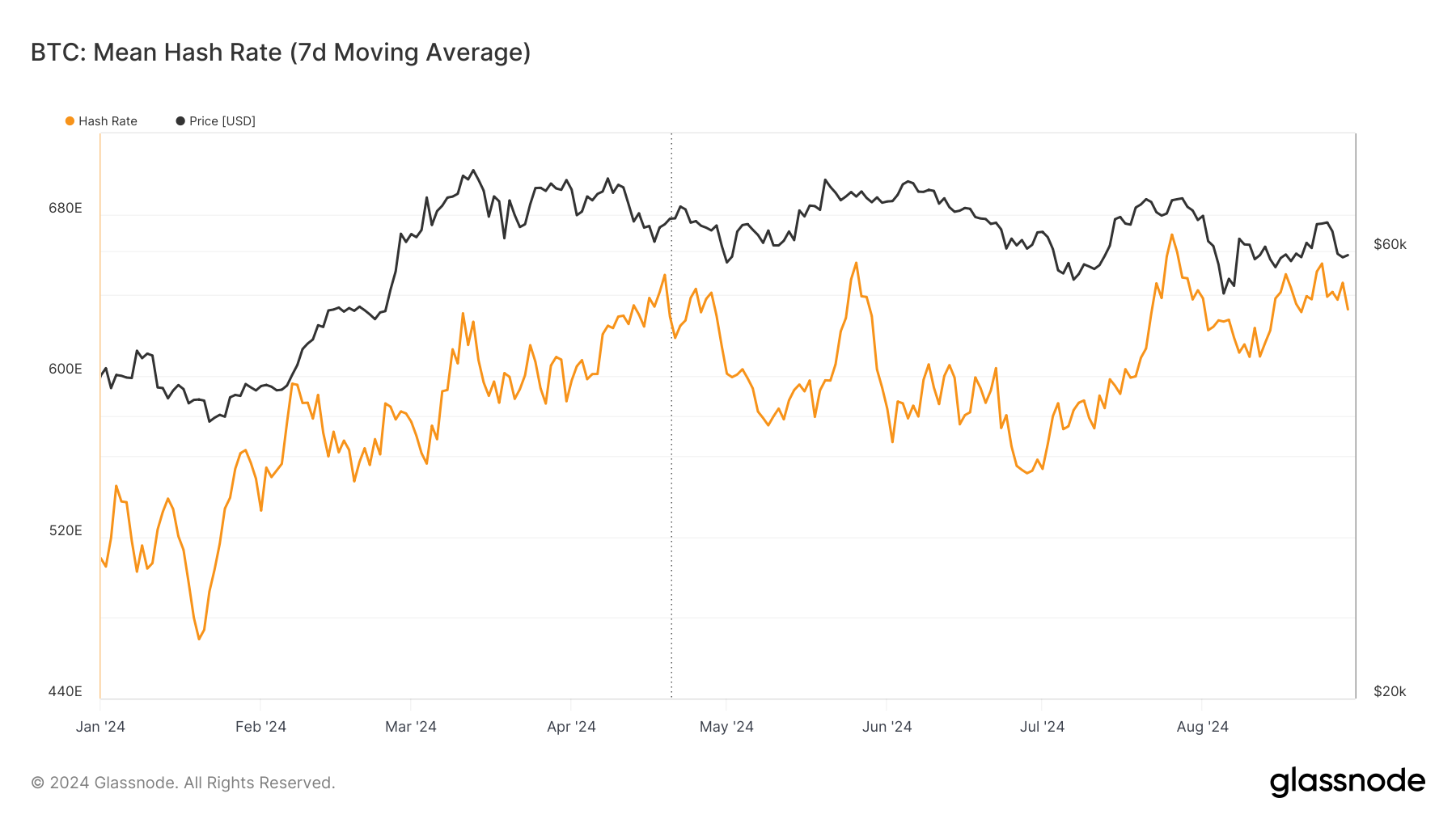This post originally appeared on ZeMing M. Gao’s website, and we republished with permission from the author. Read the full piece here.
It seems that every time when the BSV blockchain shows dominating transaction volumes, bitinfocharts.com is put in a very uncomfortable position. In fact, the trouble must be so great that they would remove BSV from the chart temporarily until the storm abates.
What you see on bitinfocharts is a reflection of the whole crypto world’s mood about BSV.
The crypto industry is a casino, and casinos cannot tolerate any player that appears to have cracked the game at the expense of the house.
But at a deeper level, the crypto industry is a cartel (if not a crime syndicate). Cartels suppress two opposite types of acts:
– A direct threat, namely acts that would reveal the truth (which could destroy the very existence of the cartel);
– An indirect threat, such as acts that are the same type of lies of the cartel members but appear overly distinguished or disproportional (which would also endanger the ‘normalcy’ of the cartel).
Often these two things are mixed together because the cartel members may not be able to recognize the truth and, therefore, always assume everyone’s telling lies.
Therefore, when an exceptional party releases truthful signals, it faces oddly two different types of a reaction from the cartel members, depending on the nature of the signal and also the magnitude of the signal.
(1) The first type: your signal is true, and they readily recognize that your signal is true. They will thus feel threatened and will jump to suppress it immediately. This is the case when the utility and applications of Bitcoin SV (BSV) are discussed, its authenticity as the original Bitcoin is presented, or the identity of Satoshi is revealed, etc.
(2) The second type: your signal is true, but they do not realize nor believe your signal is true. They first ignore you as you pose no threat. But when your signal is too much out of the ordinary, they come against you, not necessarily because they suddenly realize that you’re telling the truth, but because they feel that anything out of the inexplicit normal proportions is a threat to the cartel. This is the case when the BSV blockchain poses high TPS and exceptionally large daily transaction volumes.
I don’t think bitinfocharts.com is targeting BSV specifically. In fact, I appreciate the fact that they have not already permanently removed BSV from their charts at this point. They, like most others in the crypto world, probably don’t realize that BSV’s transaction volumes indicate true utility (including scalability) to pose a real threat to the crypto world that fakes utility. If they did, they might have acted differently.
But the crypto cartel is in action, nonetheless.
I am not calling it a conspiracy. I’m not a conspiracist. Quite the opposite, as I believe there are very few large-scale conspiracies where people have actually met, discussed, and explicitly agreed upon a conspiratorial act, and have subsequently acted according to the plan.
However, there are more ways to form an effective cartel-like system than conspiracy. A concerted effort of various people in control or power, driven by a selfish common interest, will do. It can even be spontaneous without a clear leader and an organizer.
The key is not whether people are driven by a common interest at all. The key differentiator is in what kind of interest it is, what goal they have, what kind of work they do, and what kind of fruits they produce.
The focus here is not on bitinfocharts itself, which is just an illustrative example in this case, perhaps only a barometer. It’s the overall atmosphere, attitude, and behavior of the crypto world, in connection with the drivers behind them, that reveal a cartel-like system.
The crypto world implicitly assumes that every blockchain is faking its claim of utility and therefore directs people’s attention away from the actual utility into the coin prices.
But transaction volume data is also provided, in case some people, unfortunately, there are always some curious ones, do look beyond the price. In the views of the reptile cartel, such data should appear to be reasonable and not further aggravate the fake claims of utility.
And by ‘transactions,’ they mostly just mean coin trading.
As a result, only a balanced, calm, normal chart of transaction volumes is compatible with the crypto narratives.
It is a cartel’s safety rule, which is based on the following premises:
– when no one can really do anything, everyone can appear to be doing something;
– when the lies are kind of ‘standardized’ or ‘normalized’, everyone can freely lie without worrying about others’ lies.
That’s why the crypto world finds it intolerable when BSV shows off transaction volumes hundreds of times higher than that of others. Showings of such exceptional volumes endanger the normalcy of a cartel ecosystem. They make people wonder and even ask dangerous questions, like “How could a coin that is delisted by nearly all exchanges still have the highest transaction volume? Does that mean there are real transactions other than trading?” Or, “How could the market cap of a coin be less than 0.1% of the total market when its native blockchain is showing over 90% of transaction share of the entire blockchain space?”
The crypto cartel wants to put the above questions backward as a conclusive rhetorical one. They want people to mock rather than actually inquire. “Look what we’ve got here, a coin of less than 0.1% market wants to tell us that it has some transaction volumes!” If the mocking comes with actual insults, all the better.
This isn’t too hard in the crypto world, after all. In fact, it is the only logical thing to do and to expect because, in the crypto world, the coin price is both the premise and the ground truth. For many crypto devotees, the price is also ‘the high truth, ‘the center of the idol to which all the praises and admirations belong. Everything is centered around and based on the coin price. Discussions of actual utility are usually not favorable topics and, when conducted at all, are only to dress things up.
However, even in the highly distorted crypto world, there are boundaries beyond which dangers are perceived to exist.
A cartel, or even just a loose syndicate, has implicit rules of what’s normal and acceptable. It might be considered acceptable for a blockchain like BSV to show transaction volumes below 50% of the transactions of all other chains combined, but it would become ‘abnormal,’ in fact totally intolerable, for it to suddenly dominates 95% or higher of the whole thing. It just looks bad. It should go away. They are like, “come on, everyone is just playing a game here, so for one chain to show off such domination is just unfair, bad for the community, especially when the chain is not for the coin we have bet ‘the number go up’.”
Life in a cartel is not easy, but manageable when the business still goes on.
Except that they are all in darkness, not knowing what is really happening and what more is going to happen.
BSV is in an entirely different game. When it says utility, it means real, high-volume, and low-cost microtransactions of a productive economy, not self-referencing speculative trading only. This type of real utility means real productive business, which always gravitates toward a system that is more scalable, more efficient, and more reliable.
It is one thing that BSV occasionally shows embarrassingly high volumes on these reporting sites such as bitinfocharts.com, but it would be quite another when in the future high volumes become routine, not only sustained but keeps going up.
The pain will increase. It won’t let up. I wonder how much pretense the crypto world can muster to keep up with such a growing pain.
George Gilder: BSV has more transactions than BTC
New to blockchain? Check out CoinGeek’s Blockchain for Beginners section, the ultimate resource guide to learn more about blockchain technology.




